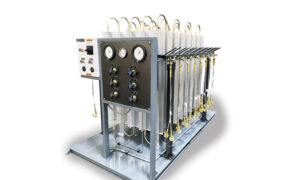Instrument Fittings: Tailpieces, Union Nuts & Adapters
Any industrial pipe system is only as effective as its fittings. Fittings are what allow different systems to work together. When you are designing an industrial piping system, selecting the proper instrument fittings will prevent leaks and malfunctions. This not only protects the productivity of your business, it keeps your employees safe from dangerous chemicals. At CPV Manufacturing, we manufacture our instrument fittings to the highest standards of quality. While we specialize in all manner of industrial pipe fittings, there are three designs we would like to highlight.
Tailpieces
Tailpieces are designed to connect the ends of separate industrial pipe systems. These fittings allow for secure wet connections, so liquids can be safely transported with minimal leakage. If you need to connect two industrial scale wet pipe systems, a properly designed tailpiece is a necessity.
Union Nuts
Union nuts are an essential component of any hydraulic or pneumatic industrial pipe system. They are advantageous for systems requiring customization, as they can be unscrewed and reattached whenever you see fit. A strong union nut should be resistant to vibration and pulsation, so they can provide long-term use without developing leaks. CPV Manufacturing’s union nuts are resistant to rust and chemicals, making them ideal for gas or water piping.
Adapters
Adapters are a type of adjustable pipe fitting designed to extend or terminate a pipe run. They are similar to pipe couplings, with the added advantage of being able to connect dissimilar pipes. Adapters come in a variety of shapes and sizes and have numerous applications.
If you have questions about instrument fittings or the products CPV Manufacturing offers, contact us today.

